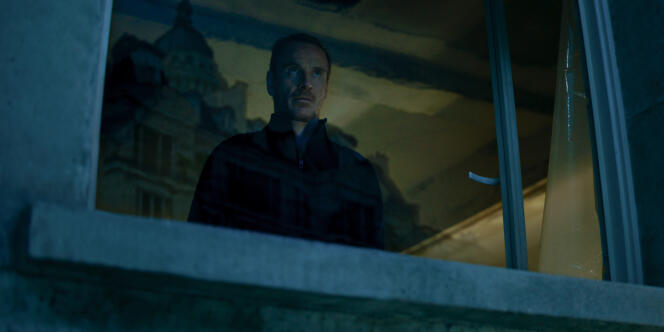


NETFLIX - ON DEMAND - FILM
For those expecting him to have created a new fictional labyrinth (Zodiac, The Social Network) or mental trap (Fight Club, Gone Girl) with a complex architecture in the purest Neo-hitchcockian tradition, David Fincher's latest feature is likely to be disconcerting. Based on a French comic strip by Matz and Luc Jacamon (The Killer), The Killer is a simple, one-shot film that goes straight to the point, moving from one stage to the next while avoiding digressions and pretense. With this film, Fincher makes a detour into B-movies as someone who would go on a strict diet, returning to his roots with the dry efficiency he was known for in his early 90s days.
A lone gunman (Michael Fassbender) stationed on the top floor of a building under construction in Paris is waiting for his target, only to miss the crucial moment when it arrives. Those who ordered the hit turn against him, and he's forced to move one step ahead of them and work his way up the chain – henchmen, associates and principals, right up to the client – to take them out one by one and save his own skin while traveling to several countries in the process. From the outset, Fincher parallels this straightforward premise to the streaming platform's flow logic with boilerplate (and very anti-cinematographic) opening credits that resemble those of a police TV series like CSI: Miami (2000-2015).
Even more than as an expertise, the film presents the assassin's process as a routine broken up into a series of strict rules. It uses voice-over to capture the shooter's inner monologue, a series of solemn maxims uttered in a cynical tone, which, by pretending to hold sway over chance, reveals a certain hubris, as the man gladly counts himself among the elite and uses cold-hearted statistics to justify his actions. As the only way to gain access to this silent and clandestine protagonist, this commentary mainly reveals his isolation and self-imposed solitude. Even more than the raw action (including a hard-hitting brawl in Florida), the camera follows the many phases of his careful preparation and solitary waiting, which consist of melting into anonymity and disappearing into the very heart of the world – most of his activity being dormant.
The gunman's voice-over is sometimes contradicted by pesky facts and a recalcitrant reality. Rather than exploring this irony, Fincher falls back on the hero's professionalism, mirroring his mastery with his direction. With dry pans, steady dollies and snap cuts – an aesthetic arsenal infatuated with its terse efficiency – the character is like a skeleton key that knows how to exploit the weak links of a techno-digital modernity where excessive information has become a new way to blur the lines. As a man in tune with his hero's hyper-competence, merely a reflection of his own, Fincher offers an ode to the "craft" by example. By modernizing a B-movie, a revelation emerges: The filmmaker's touch is as much about know-how as it is about its immediate flip side, namely a polished and somewhat frigid form of hygienics.
You have 25% of this article left to read. The rest is for subscribers only.
